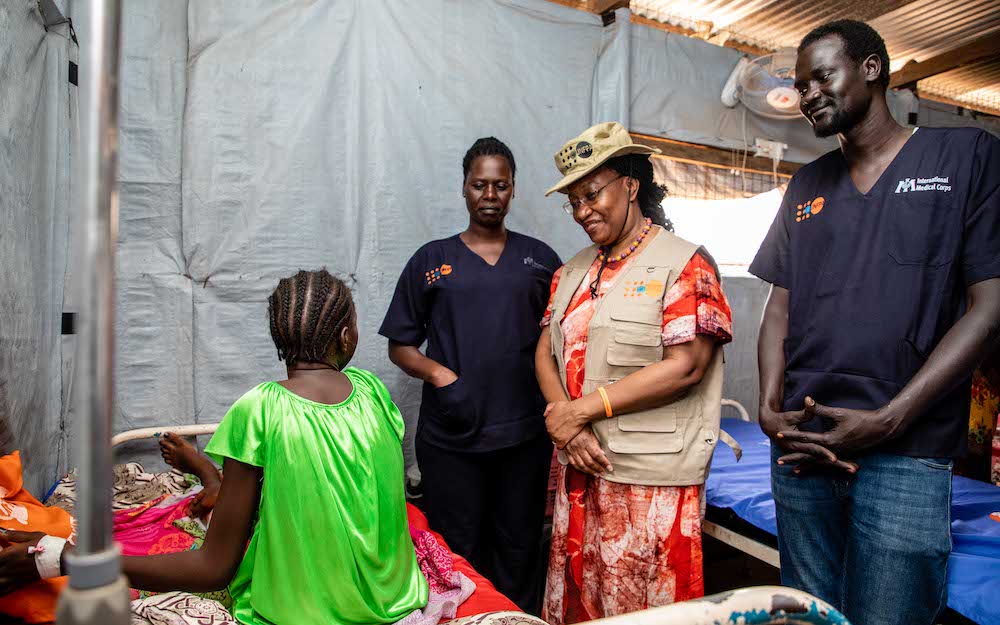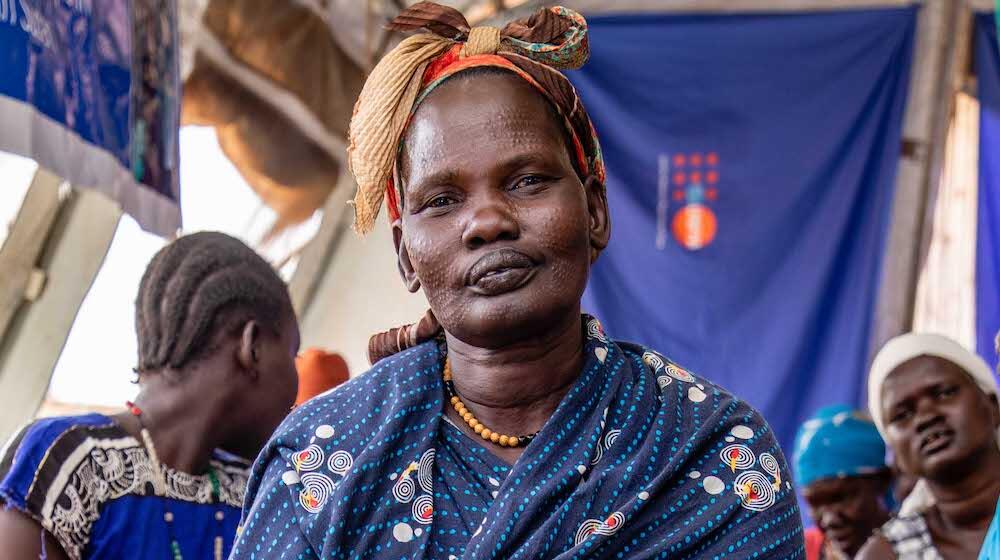JUBA, South Sudan—Mother-of-five Rebecca Nyakot, displaced from Unity State following the outbreak of conflict in South Sudan in 2013, often goes for long periods without food or clean, drinkable water in the Internally Displaced Persons (IDP) camp in Juba, the capital city.
She is one of many women who have been made widows by the war and have taken on the burden of being the breadwinners for their families. Yet scarce resources and the uncertainty of how long they will have to live displaced from their homes exact a psychological toll.
As she described living conditions that are particularly difficult for women and girls, her tears fell. “We take long, risky journeys in the bush outside the camp to collect firewood, which exposes us and our daughters to rape. We do not know how long we are going to stay here,” she said.
Our safety and health are worrying as we take long, risky journeys in the bush outside the camp to collect firewood, which exposes us and our daughters to rape.
Mary Nyagai, also resident in the IDP camp, described being overburdened by the task of caring for children. Girls are being compelled to drop out of school as a result of rape, early and forced marriage, she said. In addition, they need food, education, and health services.
“Here in the camp, it is only women [who are] responsible for the children. Women go and fetch firewood to sell so that they survive, but that is increasingly difficult work because of the attacks. There is no one to stand with us,” she said.
Devastating impact of conflict on women and girls
Conflict has a devastating impact on women, girls and young people the world over – and a perfect example is the situation in South Sudan. Women in conflict situations face bleak prospects, with a loss of access to health services and other basic needs, and are exposed to a higher risk of violence, especially sexual and gender-based violence.
Displaced women in Juba IDP camp endure tough conditions. Living in poor shelters in harsh climatic conditions, they often go without food and live in fear for their own safety – especially that of their daughters, who are particularly vulnerable. They also have limited access to much-needed reproductive health care services, which can be life-saving.

UNFPA Regional Director Lydia Zigomo paid a visit recently to the camp to view the conditions.
“What I have witnessed in the camp is the enormous need for even the most basic necessities. That is something that we must keep highlighting, not just to the government of South Sudan, but also to the international community,” she said.
She called for an urgent and collective response to address the plight of displaced women and girls in South Sudan, as they require adequate resources to meet their needs, including the right to live decently and free from violence.
There is a need to invest more in peace for sustainability, continuous support for reproductive health services and supplies for the women, particularly for choice in family planning for those of reproductive age, and activities geared towards societal norms change. Early marriage and unintended pregnancies are still the elephant in the room, she said, stressing that children should be borne by choice rather than by chance.
Rather than having babies as teenagers, I would like to see our daughters go to school and complete their education, which will lead to [more] progressive societies,
“Rather than having babies as teenagers, I would like to see our daughters go to school and complete their education, which will lead to [more] progressive societies,” Ms. Zigomo said.
Tackling high rates of child marriage, teen pregnancy and school dropout
In South Sudan, 40 per cent of girls are married before the age of 18, according to the South Sudan Household Survey of 2010. Only 6 per cent of girls complete primary school, with 1 in 5 dropping out of secondary school due to pregnancy, which is exceptionally high at 30 per cent.
In the ongoing conflict, sexual violence is used against women and girls as a tactic of war. Conflict-related sexual violence remains rampant yet it is underreported due to stigma, fear of retaliation and lack of a proper system for access to justice.
Ms. Zigomo pledged to advocate for women and to discuss their plight with those who could assist them. “I am a mother and have a daughter, just like you,” she said, after listening to the heartrending stories of displaced women in the camp. “It is our responsibility as women to ensure that these girls and our children have a different, better reality and experience than ours.”
Through the International Medical Corps (IMC), UNFPA is supporting the IDP camp’s health facility in the provision of reproductive health services for women and girls, to ensure safe births and provide family planning, in addition to other regular services. The clinic serves a population of more than 24,000 IDPs.


